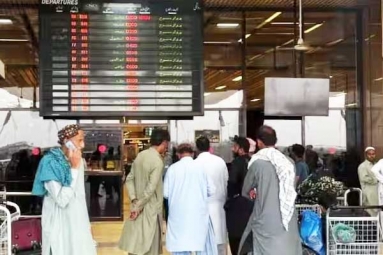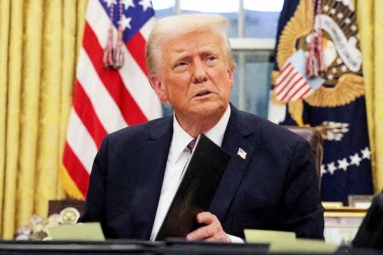
(Image source from: Canva.com)
The approach taken by the Trump administration to enforce stricter regulations on student visas has caused significant concerns in the field of international education, especially among Indian families, who represent the largest group of overseas students in the United States. While officials in Washington believe that these tougher regulations will prevent misuse of visas, opponents argue that this policy might undermine America's established position as the premier destination for higher education globally. Such policy ideas highlight the importance for students to be clear about their study abroad experience. The key factor will be how they utilize their time in the US, which involves selecting programs aligned with global skill requirements, pursuing internships and research roles, and creating strong professional connections. These aspects will assist students in navigating the unstable policy landscape and achieving long-term career success.
What Changed in USA Visa Policy?
Fixed Timeframe for F, J, and I visas: The Department of Homeland Security has suggested changing the flexible "duration of status" system to a set four-year limit for students and exchange visitors, with the chance to renew. Journalists would face a limit of 240 days (or 90 days for Chinese journalists).
Increased scrutiny: Delays have occurred in student visa interviews, with officials now investigating the social media activity of applicants. Applications showing political beliefs, particularly related to pro-Palestinian activism, have reportedly faced rejections and cancellations.
Legal challenges: Institutions like Harvard have already opposed efforts to take away their capacity to host international students, successfully obtaining temporary orders to prevent this.
Why is USA making this Move?
The government asserts that this change will lessen visa misuse and enhance management. Yet, immigration supporters argue that this action is mostly political, responding to national worries about "border control" instead of addressing real educational issues. Trump's suggested restrictions on student visas are part of a broader agenda to limit immigration, creating uncertainty for international students, particularly from India. For many, the allure of the US is not solely academic but also includes options for work after study. If opportunities like OPT or H-1B are minimized, students could find themselves receiving less value from their investments. This situation may lead more Indian students to consider countries like Canada, Germany, and the UK, which provide more transparent and stable prospects.
The Indian Impact: From Dreams to Dilemma
India leading in numbers: Over 330,000 Indian students were enrolled in American universities in 2024, contributing around $9 billion to the US economy each year.
Ambiguity and disruption: Students now encounter frequent renewals, increased expenses, and the possibility of having their visas revoked unexpectedly. Many families are rethinking their plans.
Change in preferences: With US opportunities being unclear, a growing number of Indians are looking at Canada, the UK, and Europe, or opting for the EB-5 investor visa option which grants US Green Cards in return for an investment of $800,000.
Economic Stakes for USA Universities:
This year, US universities are already seeing a 35 percent drop in applications from international students. A 10 percent decline in new student registrations may result in a nearly $1 billion loss in revenue, with total losses estimated around $3 billion.
How does the USA compare to other countries?
Canada and the UK: These countries have both extended their work visas for international graduates to bring in talent from around the world, making them more appealing options.
Australia: This country provides various stay options based on skills and local requirements.
US: In comparison, the recent limitations could hinder the US from being competitive in the global education sector.
What steps can Indian students take?
Stay updated: Regularly check for updates from the US embassy about visa processing and changes in policies.
Budget wisely: Prepare for potential renewals, legal fees, and delays.
Look at other options: Think about Canada, the UK, or Europe, which are actively trying to attract Indian students with clearer visa pathways.
Consider backup visa options: For families with the means, the EB-5 investor visa offers more certainty, though it is limited and pricey.
Seek legal assistance: Students facing issues with visa cancellation or denials should know about legal cases that have successfully challenged unjust decisions.
Is the American Dream Losing its Appeal?
The changes in visa policies during the Trump administration highlight a bigger issue: the conflict between domestic political statements and America’s image as a destination for talent. This uncertainty creates emotional stress, financial challenges, and encourages Indian students to consider other opportunities abroad. For American universities, it poses a threat to billions of dollars in income and their status in attracting global talent.

















